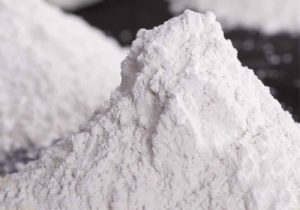
CP-992 Organophilic clay
CP-992 Organophilic Clay, the wet process improved viscosifier and gelling agent . It is a rapidly dispersing.
Types of gelling agents organoclay: There are many Types of gelling agents organoclay in Camp Shinning, which can be generally divided into solvent based and water based. Some customers can also be divided into oilfield type gelling agents, paint type gelling agents, ink type gelling agents, etc. according to applicat

CP-992 Organophilic Clay, the wet process improved viscosifier and gelling agent . It is a rapidly dispersing.

CP-982 Organophilic Clay is an amine treated bentonite with a moderate temperature performance.

CP-150 Organophilic Clay is a self-activating organoclay that disperses easily and performs well in diesel, low aromatic mineral oil, modified vegetable oil, and synthetic base fluid formulations.


CP-10 organoclay is a rheological additive made of organoclay. It is used in non-polar to moderately polar aliphatic and other solvent systems

CP-MPZ organoclays is an modified bentonite that is used in solvent and resin systems ranging from non-polar to highly polar.

The CP-MPS rheology modifier is a type of organo clay rheological additive that is used in solvent and resin systems ranging from non-polar to high polarity.
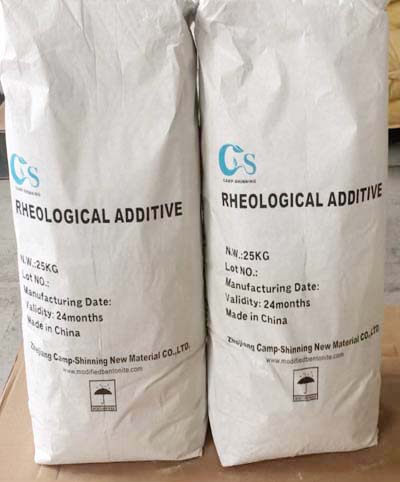
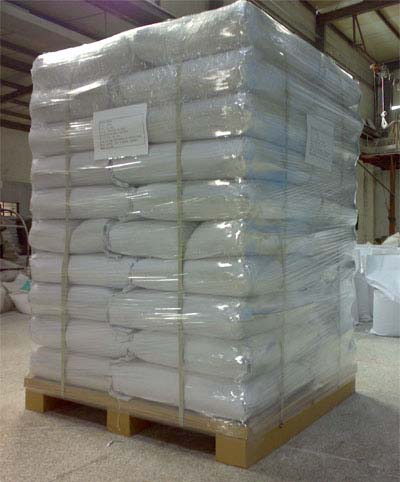
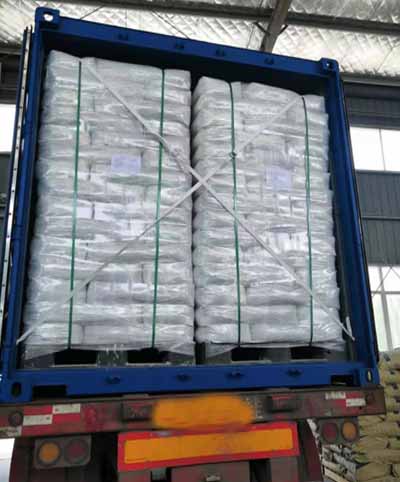
Organoclay Supplier / Manufacturer :
Internet address: https://www.rheologymodifiers.com/
Email address: [email protected]
Whatsapp / Wechat: +86-13185071071
Organophilic Clay Supplier / Manufacturer :

CP-EW Organoclay for Water Based paint. It is primarily employed in water borne paint systems,such as latex paint. So it is a good water based additive in paints,coatings,grease etc.

CP-EWS Modified bentonite It is employed in a water-borne coatings system. CP-EWS organoclay outperforms CP-EW in terms of thixotropy, transparence, and dispersion.

CP-WBS Rheology Modifier is rheological modified bentonite. It is mostly employed in water-borne systems.


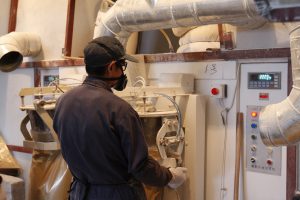
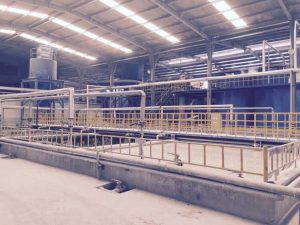
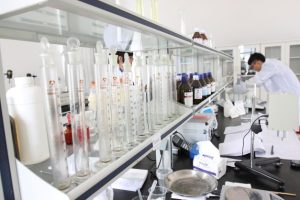
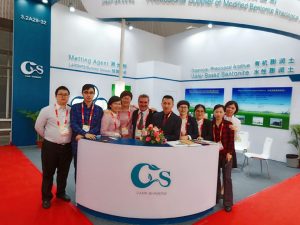
The Organoclay bentonite | Organophilic clay -specialized Zhejiang Camp-Shinning New Material CO.,LTD. and Hangzhou Camp-Shinning CO.,LTD. are subsidiaries of Camp-Shinning.
Camp-shinning concentrated on high value-added, high-technology organo bentonite series products, particularly in research, development, manufacturing, and sales of organic (solvent based organoclay) and inorganic bentonite (water based organoclay).
Our Organophilic bentonite clay finds widespread application in oil drilling mud, paint, coating, lubricating grease, adhesive, construction mortar, cosmetics, and waste water treatment, among other applications. A group of world-class professional users and distributors, such as SUN CHEMICAL,,SIEGWERK,LEHMANN &VOsS, and others, have acknowledged our dependable quality.
Current annual production of organic bentonite clay | organoclay is 20,000 metric tons, while refined bentonite production is 15,000 metric tons.
Our ISO 9001 quality system certification and IS014001 environmental management system certification, as well as our own mine with superior ore quality and production of proprietary technology, ensure the long-term quality and supply stability of our Organoclay bentonite | Organophilic clay.
Our mission is to provide users with superior Organoclay bentonite | Organophilic clay and services and to collaborate with them to achieve success and glory.
Internet address: https://www.rheologymodifiers.com/ and email address: [email protected]
Whatsapp / Wechat: +86-13185071071
Organoclay | Organophilic Clay CP-2 also named amine treated Bentonite.
In diesel oil based fluids,organophilic clay viscosifier CP-2 are used to increase carrying capacity and suspension properties, providing support for weight materials and improved cutting removal. Organophilic bentonite also aids in filter-cake formation and filtration control.
Properties
Composition Organically modified bentonite clay
Physical appearance Off white to tan free-flowing powder
Moisture content (105℃,2hr) ≤4%
Particle size (<76μm or 200mesh) ≥95%
Specific Gravity 1.6-1.8
Advantages
Effective viscosifier and gellant
Aids control of fluid loss to the formation
Increases emulsion stability
Improves cuttings carrying and hole cleaning capacity
Suspends weighting materials and other solids
Confers temperature stability to the fluid
Application
Base oil:
Diesel Oils
Crude Oils
Mineral Oils
Synthetic Oil
Viscosifying drilling Fluids:
Oil based drilling fluids
Invert emulsion fluids
Workover fluids
Completion fluids
Casing packs
Packer fluids
Spotting fluids
Package
Organoclay | Organophilic Clay CP-2 is packed in 50lb(22.7kg) or 25kg/bag or customized,multi-wall paper sacks or Kraft paper bag with PE liner or customized.
Storage
CP-2 Store in a dry, well-ventilated area with temperature of 0℃-30℃. Keep container closed. The quality guarantee period is 24 months.
Notice
The information on use is based on data which are believed reliable, but any recommendation or suggestion made is without guarantee or warranty, since the conditions of use are outside our control. All products are sold on the conditions that purchasers shall make their own tests to determine the suitability of such products for their purpose and that all risks are assumed by user. We disclaim any responsibility for damages resulting from careless or improper handling or use. Nothing herein is to be taken as permission, inducement or recommendation to practice any patented invention without a license.
Internet address: https://www.rheologicaladditive.com/ and email address: [email protected]
Whatsapp / Wechat: +86-13185071071
Gelling Agent Types transformed organoclay Modified organoclay gelling agents are a kind of adaptable substance. Their capabilities include ion exchange, electrostatic attraction, and environmental remediation. Here are a few of their primary applications: Aqueous solution manufacturing is the first one. In order to create modified organoclay gelling agents, a smectite-type clay must be combined with a quaternary ammonium molecule. Organic liquids like lubricating oils, linseed oil, toluene, and greases are gelled by the procedure. The type of organic compounds affects how organoclay gelling agents are made up. Adding a small amount of a polar dispersion, such as 95% methanol and 5% deionized water, to a set amount of toluene is another way to test the gelling abilities of modified organoclay gelling agents. The gel is then combined with a polar activator, such as water and propylene carbonate. When clay systems are utilized to separate solids from liquids, modified organoclay gelling agents are employed. For the process, a variety of polymers, from non-ionic to cationic, are frequently utilized. Phyllosilicates that have organic moieties connected by covalent bonds are modified organoclay gelling agents. They are appropriate for a range of applications and have a high surface area. They also include quaternary ammonium ions that can exchange water. Paints and other items are another area in which organoclay is used. It can also be used as grease or lubricant. It is a hydrophilic colloid that combines with water to create colloidal dispersions. Free hydrocarbons, dissolved hydrocarbons, and BTEX can all be effectively removed using the new oilfield produced water treatment method known as organoclay. It is a granular substance created by mixing cationic quaternary amine salts with sodium montmorillonite clay. The amines between the clay platelets create biological pillars. Organoclays had polar activators added to them in amounts ranging from 33 to 100 weight percent. It increased the stability of the gel structures and strengthened the gel’s water contact angle. Additionally, the rheological qualities of the gels were improved by ultrasonication. Polar and nonpolar surfactants are separated into two layers in organoclay dispersions. More swelling and wider basal spacing are caused by the nonpolar layer. The polar layer, in contrast, is thinner and narrows the basal spacing. Oil and grease may be effectively removed from water using organoclay. Organoclay dissolves grease and oil from water seven times faster than activated carbon does. It’s crucial to establish a dosage curve for the best outcomes. The amount of organoclay needed to polish the water can be determined once a dose curve has been constructed. Applications for organoclay include mineral drilling, the formation of paint, and the removal of grease and oil. Another rheological ingredient is Chinese organoclay bentonite.
Organoclay Supplier / Manufacturer :
Internet address: https://www.rheologymodifiers.com/
Email address: [email protected]
Whatsapp / Wechat: +86-13185071071
Organophilic Clay Supplier / Manufacturer :

CP-180 organoclay is an organo clay rheological additive (modified montmorillonite) designed specifically for use in solvent-based systems

CP-34 organoclay is a modified bentonite that has been specifically designed for use in solvent-based systems.

CP-EDS modified bentonite is a kind of organo clay rheological additive. It is used in systems of medium polarity and high polarity system.
Types of gelling agents organoclay